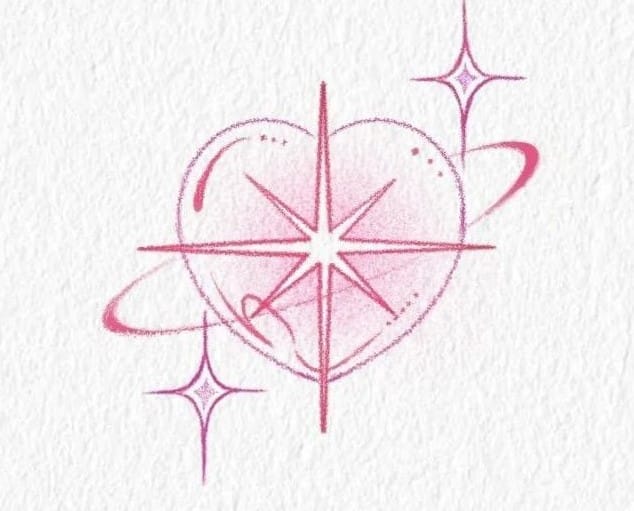Healing from Trauma: Reclaiming Your Narrative and Restoring Wholeness

Afreen Hussain
March 22 , 2024

Trauma is a deep wound that pierces not just the physical body but also the core of the individual. Even while the scars aren't always apparent, they are still very much there. In spite of everything, there is a way to heal—a road that involves taking back control of your story and becoming whole again.
Comprehending Trauma:
There are several types of trauma: psychological, emotional, and physical. It may result from a single incident or from repeated exposure to hardship and stress. Trauma destroys our feeling of security and stability, whether it comes from the devastation caused by a natural disaster, the atrocities of war, or the quiet agony of abuse.
The Effects of Trauma:
Trauma has repercussions on many facets of life. It paralyzes the body with tension and discomfort, casts a pall over the mind with worry and anxiety, and crushes the soul with hopelessness and despair. Dreams become distant memories, careers fail, and relationships suffer.
Taking Back Your Story:
Reclaiming your story and transforming it into one of empowerment and resilience is the first step towards healing from trauma. Recognizing the suffering and appreciating the bravery required to face it are the first steps in this process. It's about allowing yourself to experience emotions, grieve, and recover according to your own timeline.

Photo by Sierra Koder Team on Unsplash
Discovering Your Voice:
Finding your voice, or the ability to express your truth and be heard, is essential to taking back your story. This could entail looking for counseling or support groups where you can freely express yourself without fear of being judged. Processing trauma and regaining control over your experience can also be effectively accomplished through journaling, painting, and other creative endeavors.
Developing Compassion for Oneself:
A strong sense of self-compassion is necessary for trauma recovery in order to be able to treat oneself with care, understanding, and forgiveness. It entails accepting that your trauma does not define you and letting go of the need to punish yourself. You deserve love and healing because you are a strong, tough survivor.

Photo by De'Andre Bush Team on Unsplash
Regaining Wholeness
Restoring wholeness involves weaving the scars of trauma into your life rather than trying to erase them. It's about rediscovering your inner beauty and resiliency, and about finding meaning and purpose beyond the suffering. Every person's journey is distinct and driven by their own goals, values, and strengths.

Photo by Jen Theodore Team on Unsplash
The Function of Counseling
Therapy can be a very helpful tool in the process of recovering from trauma. A qualified therapist can offer a secure setting for you to explore your past, work through tough emotions, and acquire coping mechanisms for dealing with setbacks and triggers. Therapy is a comprehensive strategy for healing that takes into account the mind, body, and spirit through techniques like somatic experiencing, cognitive-behavioral therapy (CBT), and eye movement desensitization and reprocessing (EMDR).

Photo by Dylan Ferreira Team on Unsplash
Creating Support Systems:
Recovering from trauma is a collaborative process. Having a network of friends, family, and other survivors by your side may be a great source of support during this journey, offering empathy, validation, and encouragement. A sense of community and connection to people who have experienced similar things can also be found in online forums and support groups.

Photo by Clay Banks Team on Unsplash
Building Up Resilience:
The foundation of trauma recovery is resilience, which is the inner fortitude that enables one to overcome hardship and flourish in the face of difficulties. Taking care of oneself, developing positive coping strategies, and encouraging hope and optimism for the future are all important aspects of building resilience. It's about realizing that you are capable of growth and agency even in the most difficult circumstances.

Photo by Artem Beliaikin Team on Unsplash
Accepting Growth
Accepting the person you are becoming is more important for trauma recovery than simply going back to your previous self. It's about realizing the lessons and progress that come from hardship and applying them to build a life that is more significant, complex, and rich than you ever would have imagined. One brave step at a time, it's about taking back your story and bringing yourself back to wholeness.

Photo by name_ gravity Team on Unsplash
Resilience, courage, and compassion are necessary on the path to trauma healing. Finding your voice, developing self-compassion, and accepting change are all parts of the process of recovering your story and regaining wholeness. Resilience-building techniques, therapy, and support groups can provide direction and assistance along the journey. Healing, however, is ultimately a very personal journey that takes its own course and is led by the inner power and knowledge that each of us possesses. I hope that as you set out on this path, you will find comfort in the knowledge that even in the most difficult circumstances, healing is possible and that you are not alone.
Talk to a therapist today for support and healing!
Keep Reading
Started reading,
found my glow!
New blogs dropping soon – Sign up!
© EmbraceWell. All rights reserved




























